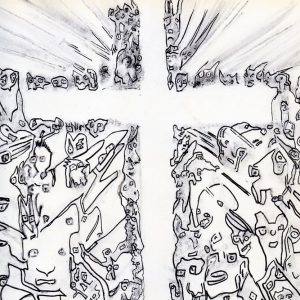Protected: Canto XLIII
Protected: Canto XLII
Protected: Canto XLI
Protected: Canto XXXIX
Protected: Canto XXXVIII
Protected: Canto XXXVII
Protected: Embers
Confessional Poetry and its Concealed Counterpart
Confessional Poetry and its Concealed Counterpart (with emphasis on the latter)
By Harry Matthews
Confessional poetry, emerging prominently in the mid-20th century, is characterised by its raw, autobiographical nature. Poets such as Sylvia Plath, Robert Lowell, and Anne Sexton engaged with personal and often traumatic experiences, breaking traditional taboos to reveal their innermost thoughts and struggles. This style starkly contrasts with more concealed or impersonal poetry, where the poet’s personal life remains hidden, allowing for universal themes to emerge without direct reference to the poet’s own experiences.
Confessional poetry’s strength lies in its emotional immediacy and unfiltered honesty. By exposing personal pain, mental illness, and intimate relationships, it bridges the gap between poet and reader, fostering a deep sense of empathy and shared humanity. Harold Bloom praised this authenticity, noting how it “revitalised the lyrical poem” by bringing an unflinching reality to the fore. This form of poetry invites readers into the poet’s psyche, offering a cathartic experience for both creator and audience.
However, confessional poetry also risks narcissism and self-indulgence. Critics like C.S. Lewis have argued that this introspective focus might limit the scope of poetic exploration, confining it to the poet’s immediate reality. Despite these critiques, confessional poetry’s impact on contemporary literature is undeniable, pushing the boundaries of what can be expressed in verse.
In contrast, concealed or impersonal poetry relies on metaphor, allegory, and broader themes that often mask the poet’s personal life. John Keats, a proponent of this style, emphasised the importance of “Negative Capability,” where the poet remains detached and capable of existing in uncertainties, mysteries, and doubts without an irritable reaching after fact and reason. This allows for a universal resonance, as the poetry transcends individual experience to explore collective human truths.
Harold Bloom celebrated Keats’s ability to “sublimate personal grief into universal art,” demonstrating the power of concealed poetry to achieve emotional depth without explicit autobiography. This approach fosters a more diverse interpretation, as readers project their own experiences onto the text, making it a shared canvas of human experience.
The merits of confessional poetry lie in its rawness and the profound connection it can create between poet and reader. It is a testament to the courage of exposing vulnerability and the therapeutic power of writing. Yet, its introspective nature can sometimes alienate readers who seek broader themes and universal relevance.
Conversely, concealed poetry offers a timeless quality, allowing for multiple interpretations and a sense of shared humanity that transcends personal boundaries. This universality, however, can sometimes result in a lack of immediate emotional impact, as the poet’s voice becomes subsumed by broader allegorical or symbolic concerns.
Both confessional and concealed poetry offer valuable contributions to the literary landscape. Confessional poetry, with its stark honesty and emotional resonance, revitalises and personalises the poetic form, while concealed poetry, through its universal themes and detachment, invites a broader range of interpretations and shared human truths. As noted by Harold Bloom and C.S. Lewis, each style brings its unique strengths and challenges, enriching poetic expression.

